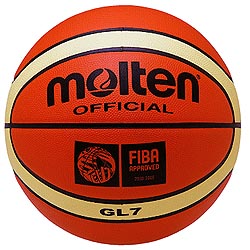Trademark Dilution Revision Act Now One Year Old
It’s been a full year of “likelihood of dilution.” On Oct. 6, 2006, President Bush signed the Trademark Dilution Revision Act, which changed how practitioners, academics, trademark owners, and the courts view famous marks. This week, I’ll recap some of the more important decisions under the new statute. In the meantime, check out 43(B)logger Rebecca Tushnet’s dispatches (here, here, here, and here) from Santa Clara University’s timely conference on “Trademark Dilution: Theoretical and Empirical Inquiries.” There’s tons of great stuff in her detailed record of the event.
Seattle Post-Intelligencer Reports on Baden v. Molten Case
On Oct. 2, the Seattle Post-Intelligencer ran a story on the Baden v. Molten decision in which a Western District jury awarded the plaintiff more than $8 million based on defendants’ false advertising and patent infringement. (STL’s previous post on the case here.)
Prof. Tushnet also discussed the decision. Her take:
“I’m surprised that a false claim that products were ‘innovative’ could produce such a large award. The term is at least close to puffing, unless there are more specific associated claims. I wonder if the jury wasn’t including compensation for patent infringement in there as well, despite the fact that logically the claims are independent; one could falsely advertise one’s basketballs as ‘innovative’ merely by producing standard old basketballs.”
The case cite is Baden Sports, Inc. v. Kabushiki Kaisha Molten, No. 06-210, 2007 WL 2790777 (W.D. Wash.).
An Imperfect Decision, Perfect 10 Founder Says
Norm Zada, founder of Perfect 10, talks to InsideCounsel about losing millions to copyright infringement, how he’d stop infringers, and why the Ninth Circuit was wrong in deciding his case. Here’s a sample:
InsideCounsel: “The 9th Circuit ruled 2-1 that the credit card companies were not liable for contributory copyright [and trademark] infringement because they did not ‘materially contribute’ to the infringements. What is wrong with this reasoning?”
Mr. Zada: “Some of the panel just doesn’t get it. It is not the policy of the U.S. to aid and abet those who profit from massive theft…. We know what happens to someone who is fencing stolen property. There is civil and criminal liability. But if you are fencing $50 billion of stolen IP, you don’t even have any civil liability, according to this panel. It is unbelievable…. According to the majority of the panel, this doesn’t contribute to infringement, even though we allege that these infringing Web sites wouldn’t be in business without these credit card systems…. The ruling makes no sense and is a horrific departure from prior interpretations of contributory infringement. The standard here would vitiate contributory liability.”
STL discussion of Perfect 10, Inc. v. Visa Int’l Svc. Ass’n., __ F.3d __, 2007 1892885, No. 05-05170 (9th Cir.), here and here.
Chief Justice Roberts: Political Parties Are Like Trademarks
The Associated Press yesterday reported on oral argument before the U.S. Supreme Court in a case that challenges Washington State’s primary system. Currently, voters here must pick a party and then vote for candidates within that party. A new law would replace that scheme, allowing voters to select their favorite candidates regardless of party affiliation. Litigation has prevented the law from taking effect.
The AP stated that “Chief Justice John Roberts compared the case to a trademark dispute. The two major parties are trying to protect their ‘brand’ to ensure that only those who agree with the party’s principles are identified with that party, he said.
“Under the law as approved, ‘people will be confused,’ Roberts said. Candidates might ‘look like Republicans but aren’t.’”
That’s an interesting take. To the extent voters look at Candidate X, see she’s a Democrat, and have an accurate picture as to where that candidate is coming from, I suppose he’s got a point. But do political parties really serve as an identifier of source? Enough that allowing voters to cross party lines in primary elections would dilute the strength of each party’s “brand”? To be sure, similarities exist between using party affiliation to “brand” a candidate and using a trademark to brand a good. For one, both convey more information about the product (be it a candidate or a car) than the product standing alone. But does the Republican party “manufacture” candidates the same way Toyota manufactures cars? I don’t think so. While voters may have an idea what it means for a candidate to be a Democrat or a Republican, that idea (at least for me) is a lot fuzzier than what it means for a car to be a Toyota or a Honda.
The consolidated cases at issue are Washington State Grange v. Washington State Republican Party, No. 06-713, and State of Washington v. Washington State Republican Party, No. 06-730.
Baden Wins $8M False Advertising Award But Not Fees or Interest
There’s a lot of money in basketballs.
On August 16, a Western District jury found Kabushiki Kaisha Molten and Molten USA, Inc., liable to its competitor, Baden Sports, Inc., for falsely advertising that its new cushioned basketball was “innovative.” It awarded Baden $8,054,579 in damages. STL discussion of the case here, here, and here.

On Sept. 25, Judge Marsha Pechman entered a permanent injunction enjoining Molten from advertising to United States consumers that its “dual cushion” basketballs are “innovative.” The injunction applies to advertising both within the United States and advertising outside of the United States that is directed to U.S. consumers.
Based on the jury’s separate finding that Molten had infringed Baden’s patent, the court also enjoined Molten from continuing to sell or offer to sell its “dual cushion” basketballs. The jury awarded Baden $38,031 on that claim.
The court nonetheless found that the case was not “exceptional” for purposes of awarding attorney’s fees or prejudgment interest under the Lanham Act.
The case cite is Baden Sports, Inc. v. Kabushiki Kaisha Molten, No. 06-210, 2007 WL 2790777 (W.D. Wash.).